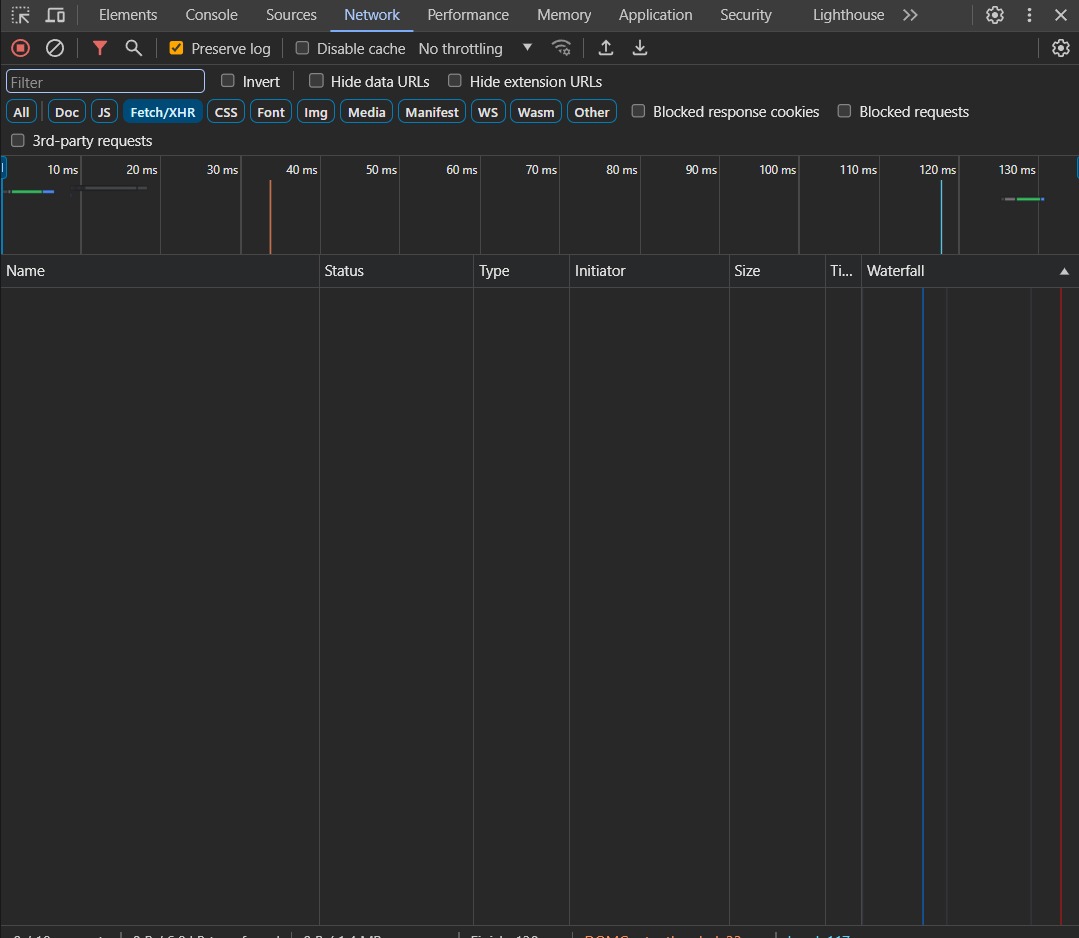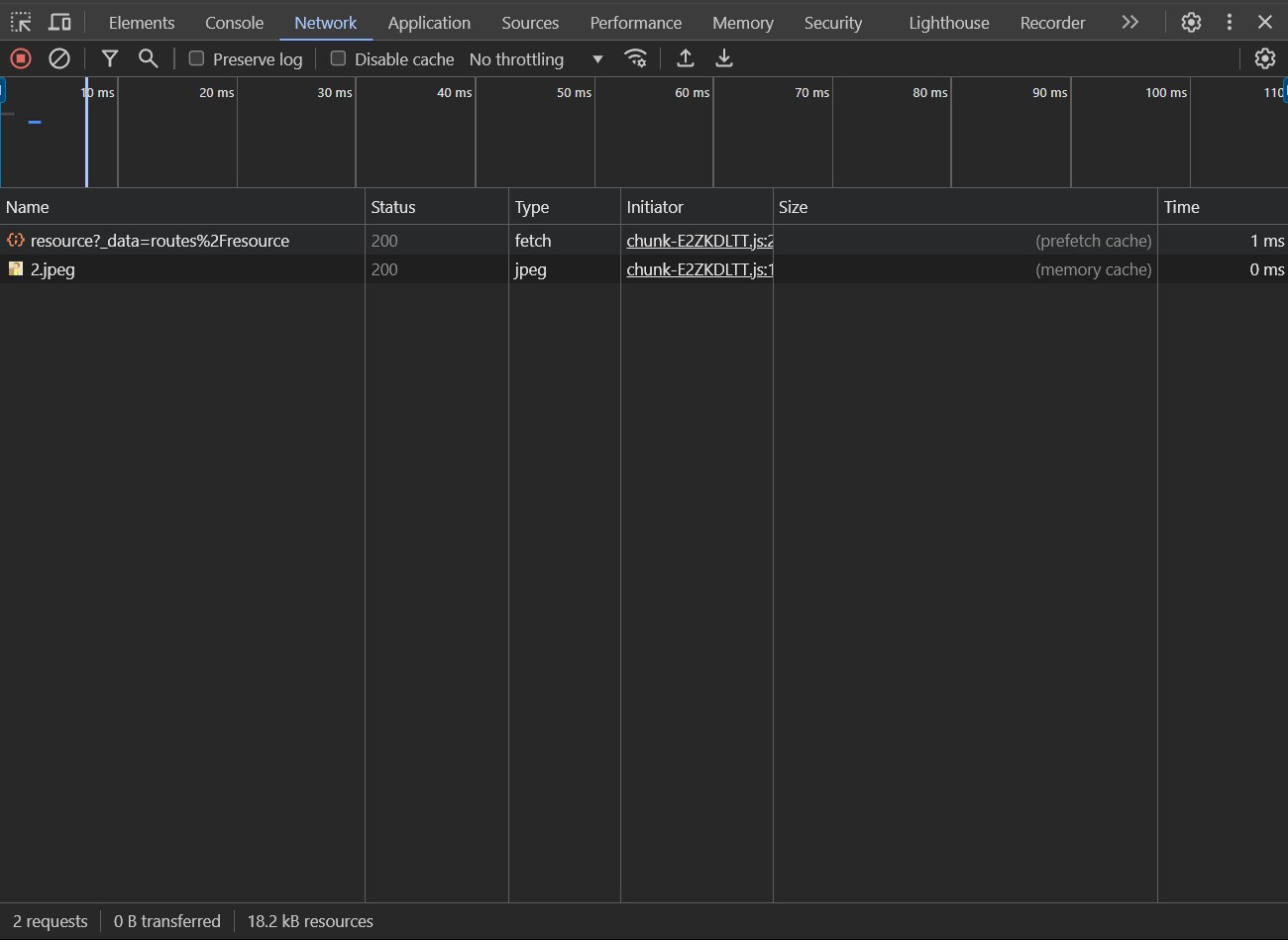Remix prefetch: Get data early and cache it with PrefetchPageLinks
This is a small guide to learn how to use data prefetching with remix and caching the data.
What application will we build?
We will create a very very simple application using the Rick and Morty API to obtain the Morty character. And we will use Remix's PrefetchPageLinks compente to obtain the data before the user clicks we will do a data prefetching.
Let's go
First of all, we will create our loader function that is responsible for requesting data from the API. We can do this function in the resource.ts file in the routes folder like this: app/routes/resource.ts
import type { LoaderFunction } from "@remix-run/node";
import { json } from "@remix-run/node";
export const loader: LoaderFunction = async () => {
await new Promise((resolve) => setTimeout(resolve, 5000));
const fetchData = await fetch("https://rickandmortyapi.com/api/character/2");
const response = await fetchData.json();
const data = response;
return json(data, {
});
};
Then we will create our component that renders the data and our types. app/components/display-data.tsx
import type { Character } from "~/types/character";
export default function DisplayData({ data }: { data: Character }) {
return (
<div className="bg-zinc-700 text-white rounded-md">
<img
src={data.image}
className="rounded-md"
alt={data.name + " " + data.species}
width={250}
height={250}
/>
<div className="font-semibold space-y-3 px-5 py-2 text-start">
<p>Name: {data.name}</p>
<p>Specie: {data.species}</p>
<p>Status: {data.status}</p>
</div>
</div>
);
}
and app/types/character.ts
export type Character = {
image: string;
name: string;
species: string;
status: string;
};
Now in our _index.tsx file we will use useFetcher() to get the data and make the load resource.
import { PrefetchPageLinks, useFetcher } from "@remix-run/react";
import type { MetaFunction } from "@remix-run/node";
import type { loader as resourceLoader } from "./resource";
import DisplayData from "~/components/display-data";
export const meta: MetaFunction = () => {
return [
{ title: "PrefetchPageLinks + Cache" },
{
name: "description",
content:
"Use PrefetchPageLinks and cache the data with Rick and Mory API",
},
];
};
export default function Index() {
let fetcher = useFetcher<typeof resourceLoader>();
return (
<main className="space-y-10 text-center">
<PrefetchPageLinks page="/resource" />
<button
className="bg-blue-500 text-white text-xl font-semibold rounded-md py-2 px-4"
type="button"
onClick={() => fetcher.load("/resource")}
>
Get Morty data
</button>
{fetcher.data && <DisplayData data={fetcher.data} />}
</main>
);
}
This is what happens on our website now:

But after 5 seconds (the time that we had specified in the loader) it loads the resource that comes from the API. And then when we click to see the image the data will be cached.

Now after 5 seconds if we click on the Get Morty data button we get the data instantly. Now we will reduce the time of our promise and cache the data.
We will add headers = { "Cache-Control": "public, max-age=60" } to our loader function:
export const loader: LoaderFunction = async () => {
await new Promise((resolve) => setTimeout(resolve, 1000));
const fetchData = await fetch("https://rickandmortyapi.com/api/character/2");
const response = await fetchData.json();
const data = response;
let headers = { "Cache-Control": "public, max-age=60" };
return json(data, {
headers,
});
};
Cool! Now our data is cached for 60 seconds. If we click on the button again, we will see that the data is loaded instantly.
The end
Thank you very much for reading this article! You can see the code here and the live demo hereThen we will create our component that renders